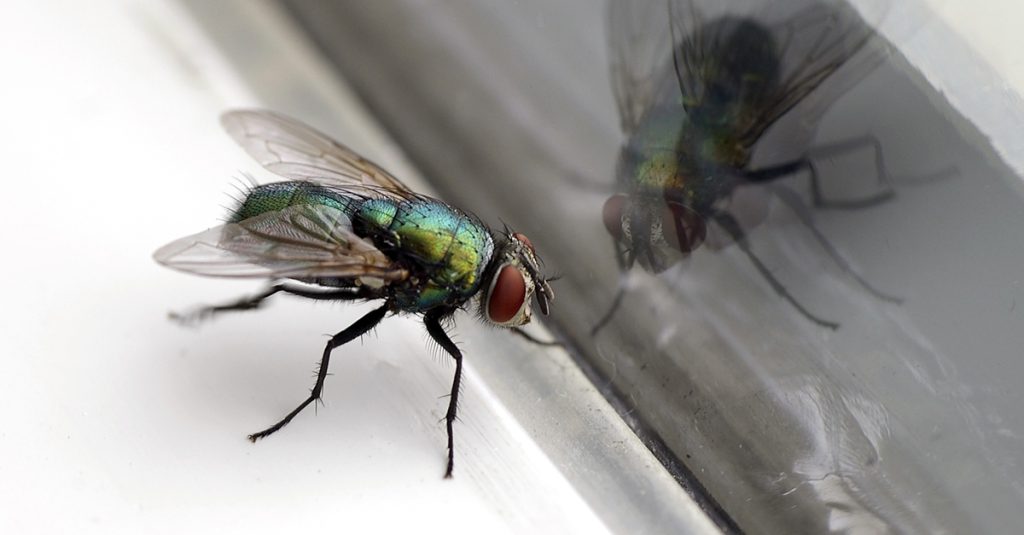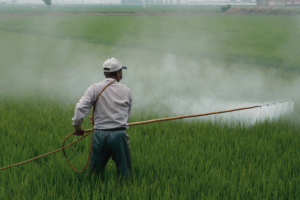Spring is in the air! In Gauteng, we have already received a few drops of much needed rain after the dry winter and so the spring flowers are finally starting to bloom into life! Unfortunately, they are not the only things that are starting to bloom.
Spring is also the time of year when little critters start to re-appear after hiding away from the cold winter. Yes – we may look forward to seeing some of these little creatures – but the rest are probably those pesky pests!
Flies are one of these pests. Their numbers can (and will) increase at an alarming rate during Spring. If you are in Gauteng – you have probably already noticed them! Before you know it, if left untreated, you might have a very unhealthy infestation on your hands.
House flies typically only live 15-25 days. But, in that lifetime – a female can lay approx. 500 eggs! These eggs will turn into adults in about a week. – and the cycle continues. So, if you do the math, a small population of flies can become a very large population of flies VERY QUICKLY.
Why are flies bad?
Remember, flies don’t chew their food. They spit up enzymes that liquify the food and they suck it up through a straw-like mouthpiece. Just imagine a fly landing on your steak and you shoo it way before it has a chance to suck up the liquid goodness left by the digestive enzymes it just spat up. These digestive enzymes are contaminated with all sorts of diseases and they have been left on your steak waiting to be consumed. That’s enough to make you lose your appetite!
What diseases are spread by flies?
- Dysentery
- Diarrhea
- Cholera
- Typhoid fever
- Leprosy
- Anthrax
- Tuberculosis
What are the main attractions that bring flies into your home?
- Uncovered fruit/food left on countertops.
- Open/full garbage bins.
- Rodents/animals that have died in the walls/ceiling.
- Pet faeces.
- Manure or compost in gardens.
- Dirty drains.
Flies can become a serious problem to both you and your pets if left untreated, or if no preventative measures are taken. Pets can injure themselves by constantly scratching at the irritation that flies cause by landing and walking on them. Flies are also known to lay eggs in open wounds on pets and livestock, the result is an infested and infected wound which can lead to sepsis and death.
How are flies good?
Contrary to how people may feel towards flies, they do also make positive contributions to our environment. For example:
- Flies can be helpful in solving crimes! By studying the fly population and their larval stages at a crime scene, forensic scientists can determine the time of death of victims.
- Some fly species are great pollinators. Some plants are actually unattractive to bees and so rely on flies to help with pollination. One such plant is the cacao tree. So thanks to hoverflies and midges – we are ultimately able to enjoy chocolate!
- The most important contribution that flies make is perhaps their contribution to the food chain. Blow flies, flesh flies and carrion flies lay their eggs in rotting animal carcasses. When the larvae hatch, the maggots feed on the decomposing animals and then excrete the digested nutrients back into the soil for the cycle of life to start again. Flies also like to lay their eggs in faeces. The maggots breakdown the feces in the same way and release the nutrients back into the ground for plants to use.
Flies should not be indoors or in areas where there are people and food. Remember, flies feed and lay their eggs on garbage, decaying animals and faeces. You DON’T want them landing on you, your food or any other surface that you or your family touch!
Conclusion
Even though flies have an importance in nature, they are dirty, spread harmful diseases and should be kept away from our homes, places of work and our domestic animals.





